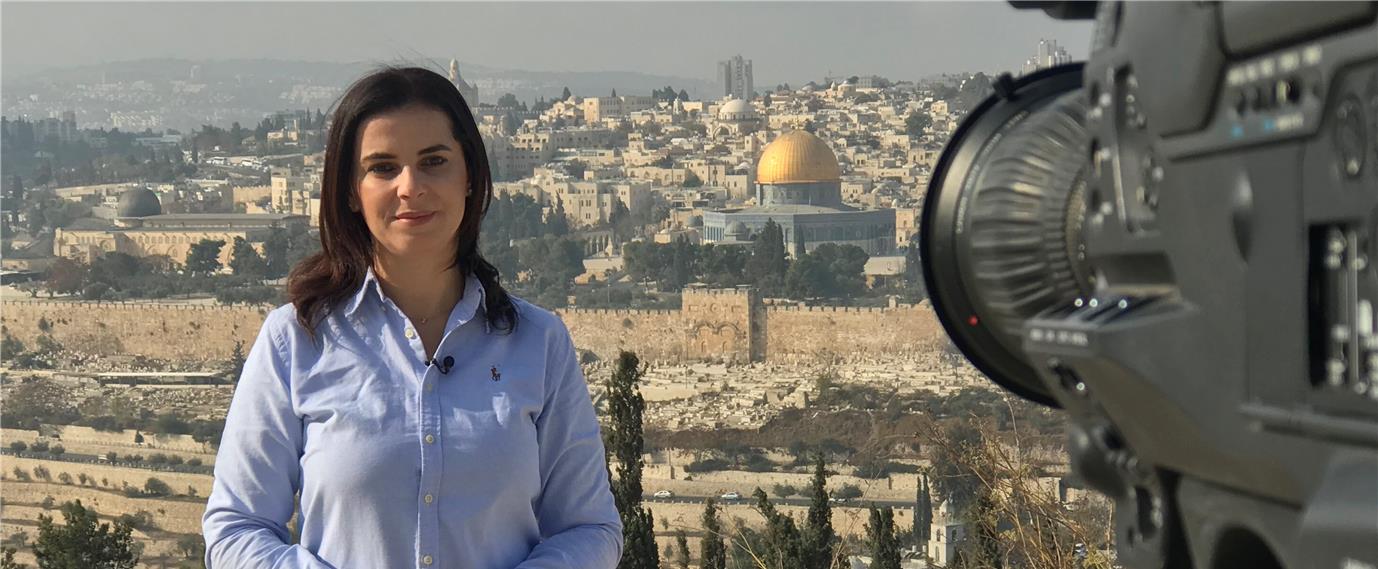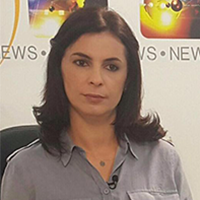- أين كنتِ قبل ذلك؟ خسارة أنك لم تنضمي إلينا في وقت سابق، تقاريرك جميلة، لكن انتهى عصر النجوم، نجوم صحافة التلفزيون أقصد، فنحن اليوم في زمان آخر، زمان تستحوذ عليه شاشات الهواتف الذكية، ويعج بمن يلقبون أنفسهم بالإعلاميين.. لقد تأخرتِ كثيرا يا صديقتي.
قالها صديق لي ونحن نجلس في زاوية مقهى قريب من كورنيش الدوحة، ثم تابع يسألني بشغف عني وعن فلسطين وعن إسرائيل وعن شكل العلاقة بينهما في تفاصيل الحياة اليومية، وعن اختلاف ألوان بطاقات هوياتنا نحن الفلسطينيين في الضفة وغزة والداخل، ومعنى ذلك الاختلاف في الألوان وانعكاسه على الملامح واللهجة وخيارات السياسة وحدود الدين والمدن والمخيمات في وجوه أبناء النكبة الواحدة، أبناء الانقسام الواحد، وسلطات الوهم المتعددة.
كان ينتقل سريعا من سؤال إلى آخر كصحفي بارع دون أن يدقق كثيراً فيما لا يروق له من إجابات طويلة مترددة أو ربما مملة فيقطعها، أو كمن أراد أن ينهي طرح كل ما لديه من أسئلة خشية أن تضيق بنا حدود الوقت والجغرافيا من جديد فلا تسمح لنا بلقاء آخر.. لم ينتبه صديقي حينها إلى وقع كلماته الأولى في نفسي، ولم يلتفت إلى تيهي في جدوى تقاريري التي امتدحها بل وتغزل بها، لكنه سرعان ما قال دون أن يقصد أو ربما قصد دون أن يقول: لا داعي لها.. وقد بلغني صداها بصوت أعلى، لا داعي لك.?
- تابع زميلي النجم الصحفي حديثه دون أن يصغي إليّ لأجيبه بصوت منخفض: ليست غايتي أن أصبح نجمة، أنا أحب الكتابة، وأحب أيضا أن أقترب من وجع الإنسان وفرحه، من اسمه وأحلامه وغضبه وخوفه وشوقه وحقيقة صوته، سأحكي القصة بتفاصيلها الصغيرة الضيقة، وأطمح أن أترك بصمة في هذا الميدان، بصمة بسيطة لعلها تُحدِث تأثيرًا ما، في مكان ما.
كان ذلك قبل عامين ونصف، أي بعد فترة قصيرة من انتقالي من عملي الصحفي خلف الكاميرا إلى الوقوف أمامها.
كانت تبدو لي المسافة التي تفصل بين هذين المكانين -أي خلف الكاميرا وأمامها- قريبة، لا سيما في عصر شاشات الهواتف الذكية، كما أطلق عليه صديقي، إذ أصبح بإمكان كل منا أن يصور الحدث، أيّ حدث، وينقله ويصف مجرياته بشكل مباشر، فكيف بشخص عمل لسنوات في المهنة ويعرف قواعدها وأسسها جيداً. لكني أيقنت سريعاً أن الأمتار القليلة الفاصلة بين المكانين على الأرض، إنما تخفي مسافة شاسعة، وأن تطبيق تلك القواعد والمبادئ يحتاج أكثر بكثير من مجرد الوقوف أمام كاميرا ونقل الحدث بشكل مباشر.
وهنا يكمن الفرق، ليس فقط بين من يطلَق عليه في عصر الثورة الرقمية "المواطن الصحفي" وبين الصحفي، وإنما أيضاً بين الصحفيين أنفسهم. وهنا يحضرني سؤال كتبه أحد أساتذتي بالجامعة في أول محاضرة قدّمها لنا ضمن مساق "أخلاقيات العمل الصحفي"، كتب حينها باللغة الإنجليزية وبخط عريض: من هو الصحفي؟ ثم قال: هذا ما سنحاول الإجابة عليه في هذا المساق.
أذكر أننا سخِرنا حينها نحن الطلبة من السؤال وقلنا "بسيطة".. لكن مع الوقت وبعد دراسة معمقة للموضوع أدركنا أننا فعلا بحاجة ملحة في عصر "فوضى المعلومات" إلى تعريف واضح ومحدد يجيب على سؤال "من هو الصحفي؟"، ولا أعني بذلك تعريفاً اسمياً أو لقباً تمنحه مؤسسة أكاديمية أو عملية، بل تصنيفاً يميز من هو الصحفي وفقاً لمبادئ ومعايير أساسية محددة، مع الأخذ بعين الاعتبار الدقة والتحري من المعلومة والمهنية والانضباط والالتزام بأخلاقيات العمل الصحفي والحياد أو على الأقل التجرد من العاطفة قدر الإمكان.
هذه الضوابط والمحددات لا يمكن في اعتقادي لأي "مواطن" أن يملكها أو يتقنها، وهو بكل الأحوال ليس مجبراً على ذلك، بخلاف الصحفي، وهنا تعمدت ألا أذكر مبدأ السرعة في نقل الخبر رغم أهميته، فلا مجال اليوم أن ينافس الصحفي أي شخص تزامن وجوده في قلب الحدث ولديه كل الإمكانيات التقنية لنقله مباشرة عبر مواقع التواصل الاجتماعي، لكنه فعليا يساعدني أنا "الصحفية" على تلقي المعلومة والصورة لصياغة قصة متكاملة متشابكة مع خيوط أخرى، لوضعها في سياق مترابط وتقديمها بشكل مهني مختلف.
ولعل في ذلك -حسب رأيي- شكل علاقة هو الأمثل بيني وبين "مواطن صحفي"، له السرعة ولي بقية ضوابط العمل الصحفي الملزمة، وهي علاقة غير تنافسية، بل تكاملية مع السعي الدائم من جانبي للتطور ومجاراة هذه الثورة الرقمية.

وللمثال لا للحصر، لا يمكنني أنا -في حالة الصحفي الفلسطيني- أن أصل إلى منزل تهدمه قوات الاحتلال قبل صاحبه، ولا إلى مواجهات اندلعت قبل المشاركين فيها، ولا إلى شخص استشهد قبل مَن تَصادفَ مرورُه بجانبه. وبالتالي يتحتم عليّ في ظل هذا الازدحام الإعلامي الرقمي أو التقليدي أن أجد طريقاً آخر لصياغة تقريري أو قصتي كما أحب أن أسميها، إذ لا معنى للمنافسة في السرعة أو العدد، لكن الهامش واسع جداً للتميز والاختلاف والانتقائية وبلورة القصة من جانب وزوايا جديدة، دون التخلي عن عنصر الوقت بحيث لا تفقد القصة أهميتها زمنيا، وهي معادلة على الصحفي أن يعرف جيدا كيف يحافظ عليها ويطوعها لصالحه.

وهنا يكمن الفرق أيضا بين أن تكون نجما صحفيا معروفا، وقد انتهى هذا العصر فعلا، وبين صحفي جديد يمكنه أن يترك بصمة إعلامية دون أن يسطع نجمه، ودون حتى أن يحفظ الناس اسمه. فبعد مضي أربع سنوات على عملي أمام الكاميرا، تصالحت مع ما قاله صديقي الصحفي.. نعم، لن أصبح نجمة، لكني أبداً لم أتأخر، وقد صرتُ أبتسم وأشعر بالرضا كلما سمعت الناس في الميدان يرددون من حولي: "هاي شيرين، لا.. أظن جيفارا، لا لا.. هذه التي غطت أحداث الأقصى..نعم نعم هذه المراسلة الجديدة في الجزيرة، نسيت ما اسمها..".








































